Find more information in the General Comments section of the assessment
Find more information in the Rating Validity tab of the assessment
- See More
- See More
- See More
- See More
- Good
- Adequate
- Marginal
- Weak
- Poor
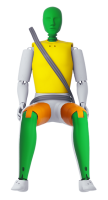 Passenger
Passenger
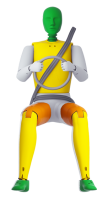 Driver
Driver
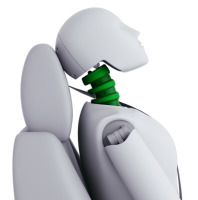 Rear Seat
Rear Seat
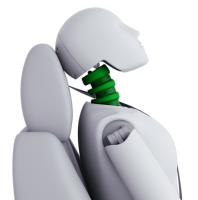 Front Seat
Front Seat
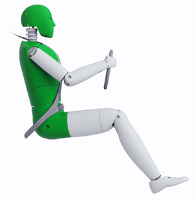 Car
Car
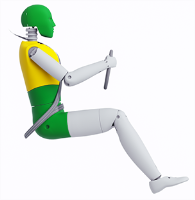 Pole
Pole
- Good
- Adequate
- Marginal
- Weak
- Poor
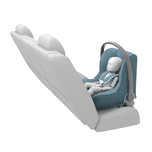
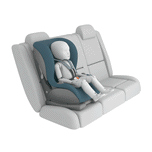
Passenger
outboard
center
Fitted to the vehicle as standard
Not fitted to the test vehicle but available as option
Not Available
-
Infants up to 13 kg
-
Infants and toddlers up to 18 kg
-
Toddlers from 9 to 18 kg
-
Toddlers over 18 kg
Easy
Difficult
Safety critical
Not allowed
| Seat Position | |||
|---|---|---|---|
| Front | 2nd row | ||
| Passenger | Left | Right | |
| Maxi Cosi Cabriofix (Belt) | |||
| Britax Römer King Plus (Belt) | |||
| Britax Römer Duo Plus (ISOFIX) | |||
| Britax Römer KidFix (Belt) | |||
| Maxi Cosi Cabriofix & EasyFix (Belt) | |||
| Maxi Cosi Cabriofix & EasyFix (ISOFIX) | |||
| BeSafe iZi Kid X3 ISOfix (ISOFIX) | |||
| Maxi Cosi Pearl & Familyfix (ISOFIX) | |||
| Britax Römer KidFix (ISOFIX) | |||
Easy
Difficult
Safety critical
Not allowed
Based on dummy readings in the crash tests, the vehicle scored maximum points for its protection of the 1½ year dummy Forward movement of the head of the 3 year dummy, sat in a forward-facing restraint, was not excessive but neck forces and chest decelerations were marginally high. The passenger airbag can be disabled to allow a rearward-facing child restraint to be used in that seating position. Clear information is provided to the driver regarding the status of the airbag and the system was rewarded. All of the restraint types for which the car is designed could be properly installed and accommodated in the car.
- Good
- Adequate
- Marginal
- Weak
- Poor
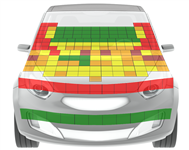
Head Impact 16.3 Pts
Pelvis Impact 0.2 Pts
Leg Impact 6.0 Pts
The bumper scored maximum points for its protection of pedestrians' legs and scored maximum points. However, the front edge of the bonnet was poor in all areas tested. The bonnet surface was predominantly adequate or marginal in its protection of the head of a struck pedestrian. Good results were recorded on the windscreen surface but poor protection was offered by the stiff windscreen pillars.
- Good
- Adequate
- Marginal
- Weak
- Poor
| System Name | ESP9 | |
| Performance | ||
| Applies To | Front seats | ||
| Warning | Driver Seat | Front Passenger(s) | Rear Passenger(s) |
| Visual | |||
| Audible | |||
|
|||
Electronic stability control is standard as well as a seatbelt reminder system for the front and rear seats. A driver-set speed limitiation device is optional but is expected to be sold in sufficient numbers to qualify for assessment in Euro NCAP's tests. There is no lane assist system or autonomous emergency braking.
- Specifications
- Safety Equipment
- Videos
- Rating Validity
Specifications
Tested Model Toyota Aygo 1 x-play, LHD
Body Type - 5 door hatchback
Year Of Publication 2014
Kerb Weight 874kg
VIN From Which Rating Applies - applies to all C1s of the specification tested
Class City and Supermini
Safety Equipment
Note: Other equipment may be available on the vehicle but was not considered in the test year.
Fitted to the vehicle as standard
Fitted to the vehicle as option
Not fitted to the test vehicle but available as option
Not Available
Not Applicable
Videos
Rating Validity




Find more information in the General Comments section of the assessment
In 2014, Citroën demonstrated that the C1 was identical to the Toyota Aygo in every way likely to influence safety. Therefore, the star rating of the Citroën C1 is the same as that of the 2014 Aygo rating and the test results of that car are given in this assessment. However, the rating for the Toyota Aygo published in December 2017 cannot be considered to apply to the C1 as Euro NCAP has received no data to demonstrate that the cars remain the same or that the fitment of safety equipment is equivalent.
 Share
Share
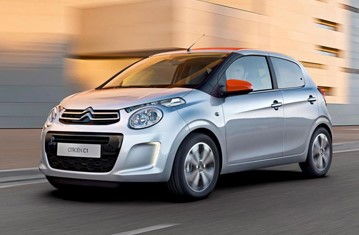
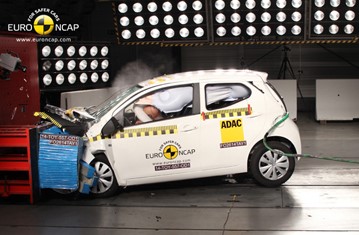
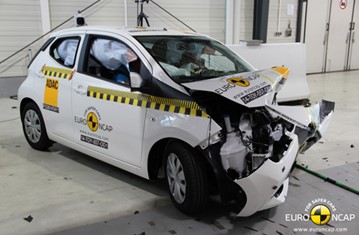
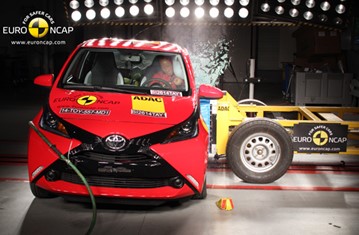
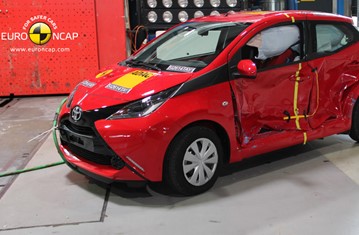
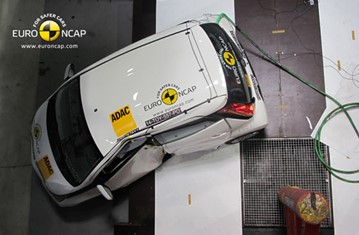



The passenger compartment remained stable in the frontal impact. Dummy readings indicated good protection of the knees and femurs of the driver and passenger. However, the steering column, ignition barrel and the edge of facia and console presented a risk of injury to occupants of different sizes and to those sat in different positions. In the side barrier test, the car scored maximum points with good protection of all body areas. In the more severe side pole test, protection of all body areas was good apart from the chest, protection of which was adequate. Protection against whiplash injury in the event of a rear-end collision was rated as good for the front and rear seats.